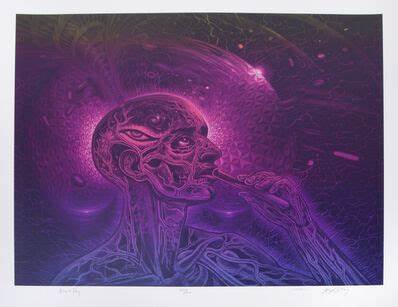Uncategorized
Psychedelic Drugs
Understanding Psychedelic Drugs
Introduction: The Power and Potential of Psychedelics
- Psychedelics, derived from Greek, mean “mind made visible.”
- The shift from recreational to medicinal use is gaining momentum.
- Misuse of these drugs can exacerbate mental health issues; hence, controlled administration is vital.
Historical Context: Psychedelics Through Ages
- Natural origins in fungi, cacti, and plants.
- Ancient cultures recognized their therapeutic potential.
- Advocates like Aldous Huxley and Humphry Osmond highlighted their controlled, therapeutic use.
Revival of Interest: Modern Research and Psychedelics
- The 1970s saw legal restrictions due to misuse.
- Today, their potential to treat widespread mental health issues is rekindling interest.
- Psychedelics resonate with modern preferences for natural treatments, promoting self-reflection and connectedness.
Popular Psychedelic Drugs and Their Potential Benefits
- Psilocybin (Magic Mushrooms): Investigated for depression, cancer-related distress, and addiction.
- LSD: Being studied for similar therapeutic uses.
- MDMA: A potential treatment for PTSD.
- Ketamine: FDA-approved for treatment-resistant depression.
- Peyote (Mescaline): Under investigation for depression and anxiety.
How Psychedelics Influence the Brain and Body
- Alter serotonin (mood, sleep) and glutamate (pain, emotion) levels.
- Enhance brain plasticity, fostering adaptability and pattern recognition.
Promising Research Outcomes
- Psilocybin shows promise in treating depression and addiction.
- LSD and ketamine have potential in reducing anxiety and alcohol misuse.
- MDMA shines in PTSD treatment, with significant symptom reductions.
Integral Role of Supportive Therapy
- Successful outcomes hinge on meticulous drug administration and robust psychotherapy.
- Multi-phase approach: Assessment, Preparation, Experience, and Integration.
- Ensures patients are mentally and emotionally prepared for the experience.
Potential Side Effects and Considerations
- Altered perception of time, anxiety, increased heart rate, and intensified sensory experiences.
- Risk of addiction and the need for rigorous monitoring.
Current FDA Stance and Future Outlook
- FDA-approved: Esketamine for treatment-resistant depression.
- Psilocybin and MDMA have breakthrough therapy designations, paving their way to broader acceptance.
- More comprehensive research is essential for mainstream adoption.
Contraindications and Safety Measures
- Caution for those with specific medical conditions or psychiatric histories.
- Always prioritize supervised, controlled administration.
Conclusion: A New Era in Mental Health Treatment
- Psychedelics present promising avenues for treating challenging mental health disorders.
- However, their therapeutic potential requires careful exploration, emphasizing both their power and the responsibility they entail.

